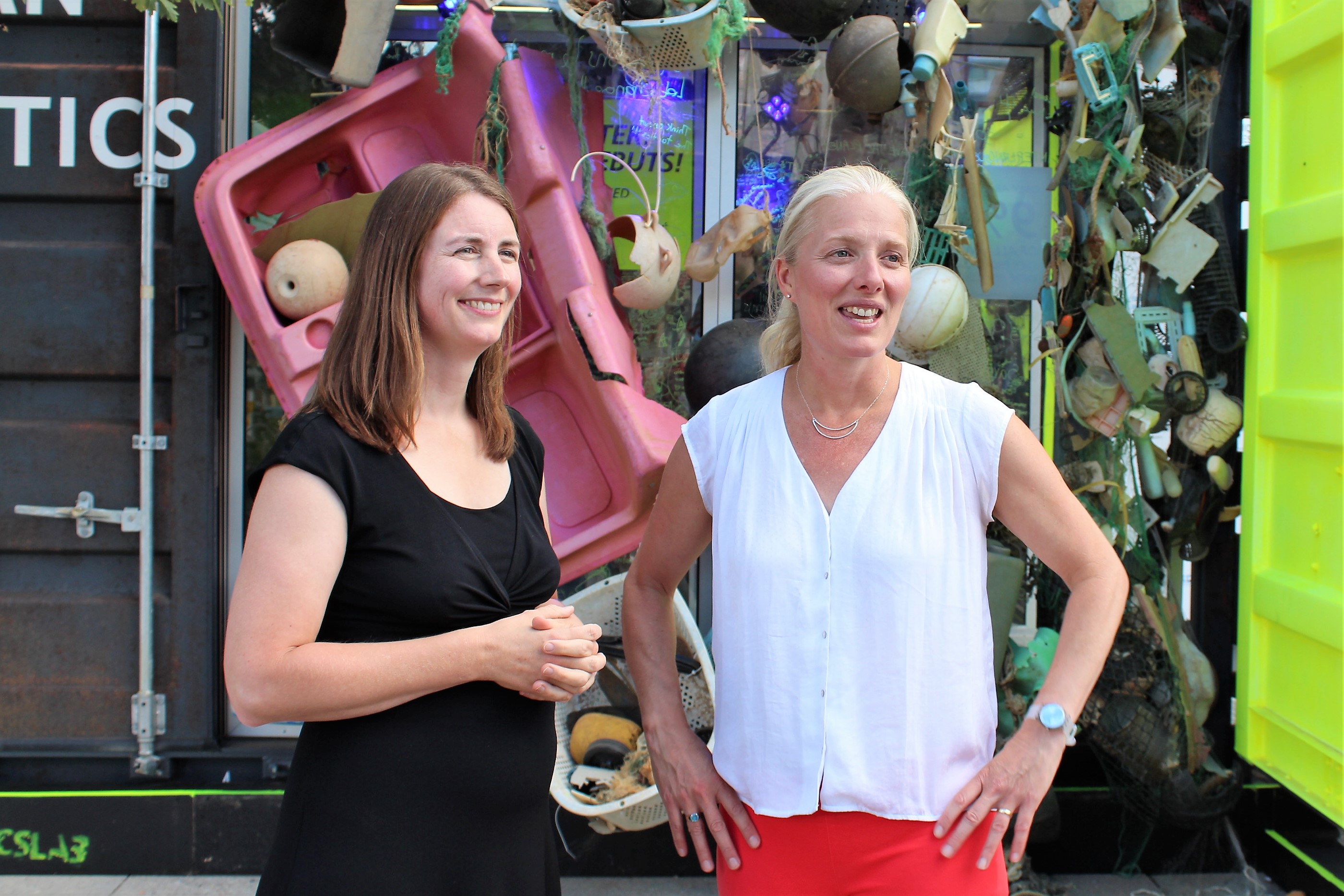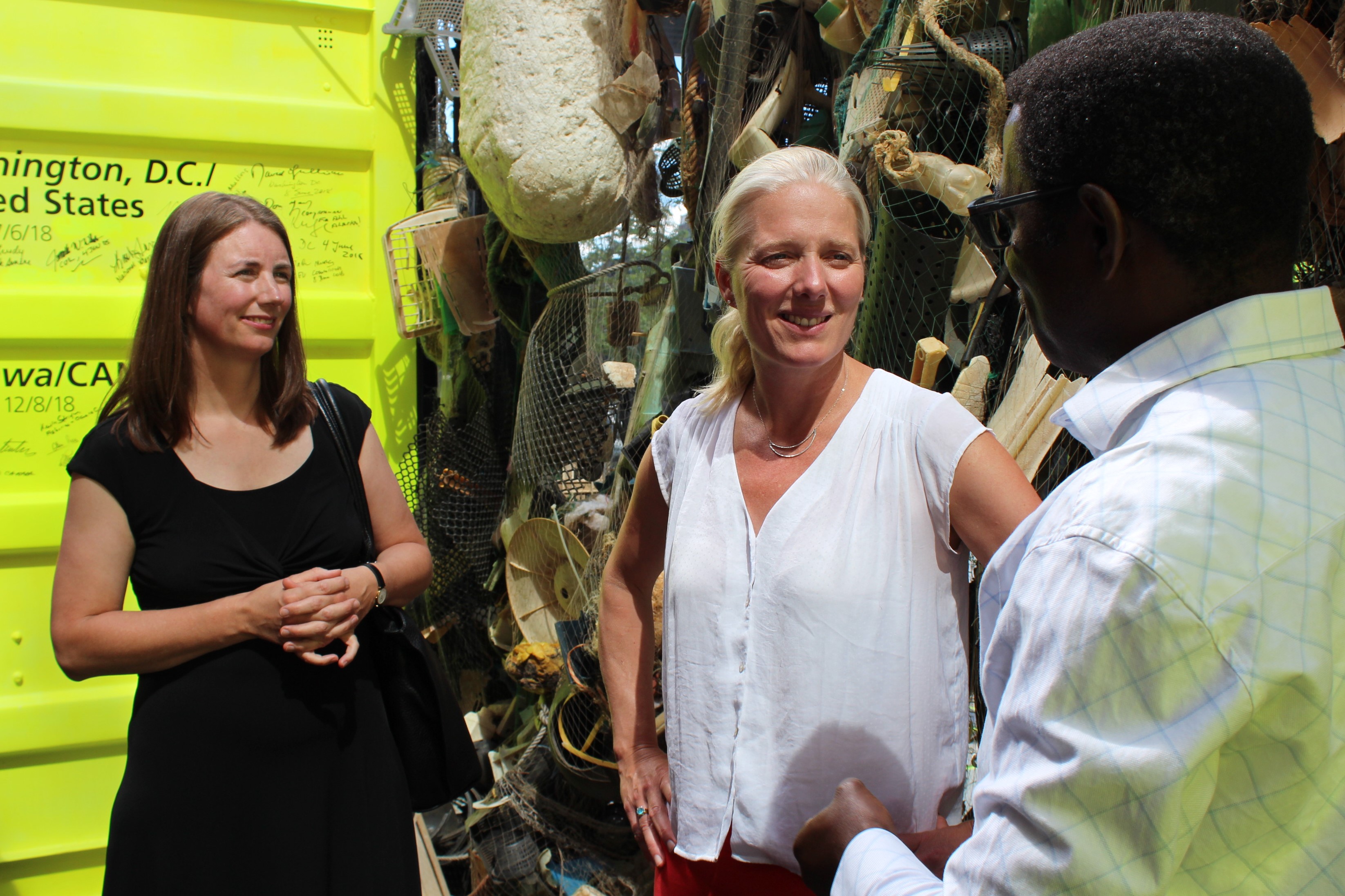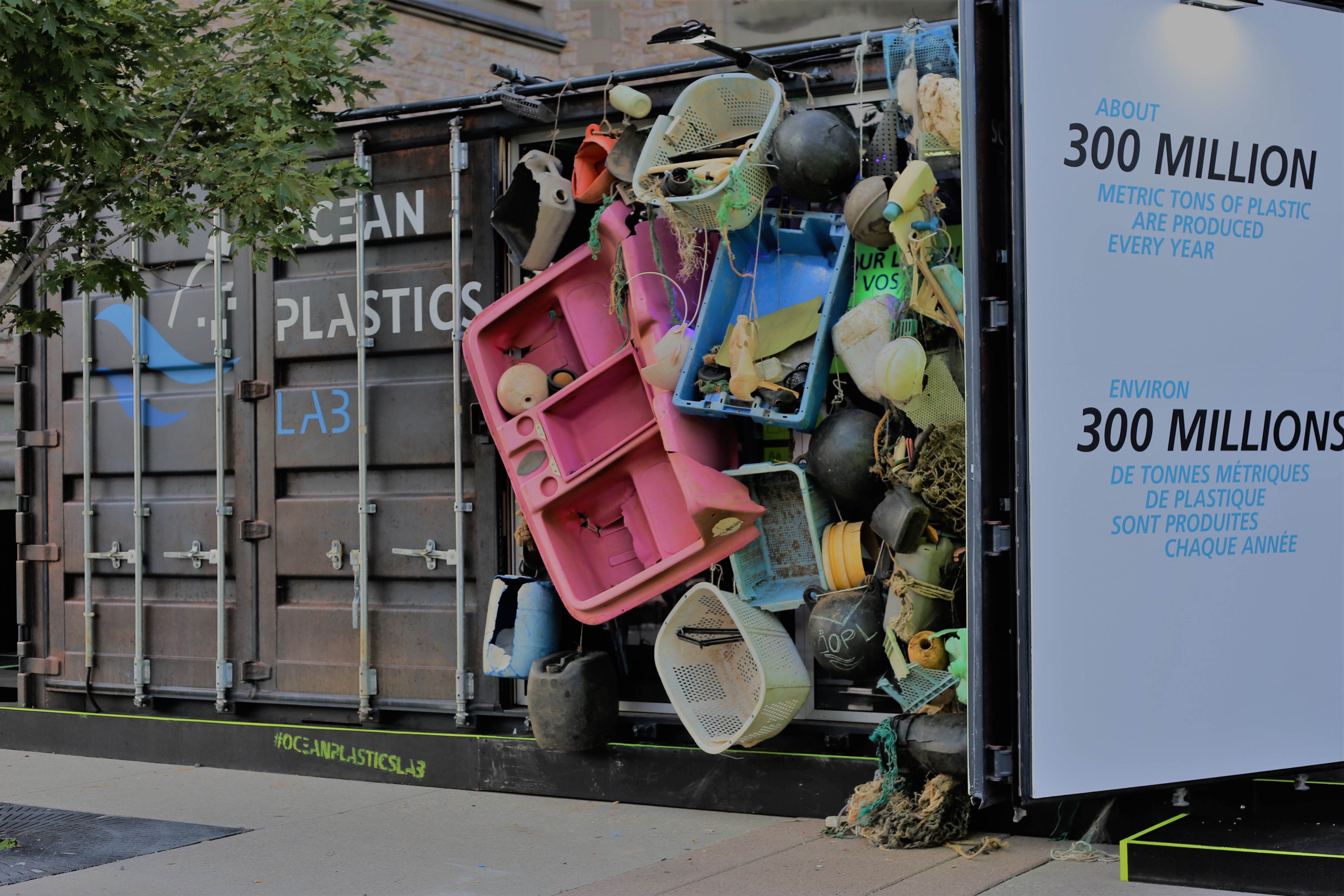
Ocean Plastics Lab – Ottawa

Part 1 of Ocean Plastics Lab – Ottawa: Background
The travelling science exhibition Ocean Plastics Lab opened its shipping container doors on the lawn of the Museum of Nature on July 30th. Julia Schnetzer, from the Berlin-based German Marine Research Consortium, had the idea for the hands-on, interactive and scientifically up-to-date exhibition that invites audiences to explore facts around plastics in our oceans.
The Oceans Plastics Lab started out last year with exhibitions in Turin, Italy; Paris; and at the seat of European government in Brussels with a stop in Washington. After Ottawa, it heads to Berlin. Under the direction of Julia Schnetzer, the Ocean Plastics Lab was launched by the German Federal Ministry of Education and Research together with the German Marine Research Consortium KDM, supported by the European Commission and international partners from politics and science.
The exhibition is housed in four shipping containers for a couple of reasons. One, it’s a practical way to send the exhibition around the world; and two, it’s a visual reminder of just how much plastic ends up in our oceans each day – the equivalent of 850 shipping containers gets dumped into the oceans every day, according to the research presented in the exhibition.
Each of the four shipping containers has a theme. The first shipping container introduces the problem. Visitors are immersed in plastic. The second presents examples of marine pollution. The third shipping container illuminates the impact of this pollution, and the fourth explores solutions. Visitors to the interactive exhibition can do all kinds of things: microscopes allow people to examine sand, people can scan everyday materials to see how long they take to decompose, garbage patches floating around the ocean can be tracked. People also learn little things they can do to help contribute to solutions to the problem.
Regarding the Ocean Plastics Lab, Dr. Julia Schnetzer has said that the stunning cooperation of so many partners around the world means this is one of the most in-depth and scientifically current exhibitions around.
Part 2 of Ocean Plastics Lab – Ottawa: Tour with Dr. Julia Schnetzer
Dr. Julia Schnetzer gave us a personal tour of the exhibition and highlighted the need to understand the complexity of what is required to solve the problems of plastics in the oceans.
Part 3 of Ocean Plastics Lab – Ottawa: Engagement
The Ottawa stop of the Ocean Plastics Lab provided an opportunity for various stakeholders to come together to get a sense of the issues, the science around them as well as the solutions. The Canadian Minister of Environment and Climate Change Canada Catherine McKenna toured the Ocean Plastics Lab with German Deputy Head of Mission Franziska Hagedorn and they spoke to visitors about the need for everyone to come together, at all levels, to beat ocean plastics. Deputy Head of Mission Franziska Hagedorn also noted the opportunity the Ocean Plastics Lab science exhibition provided towards enriching and also amplifying our understanding of the problems associated with plastics in our oceans. Minister McKenna remarked that the timing of the exhibit was opportune – just over a month ahead of the G7 Minister’s Meeting on Working Together on Climate Change, Oceans and Clean Energy in September in Halifax.
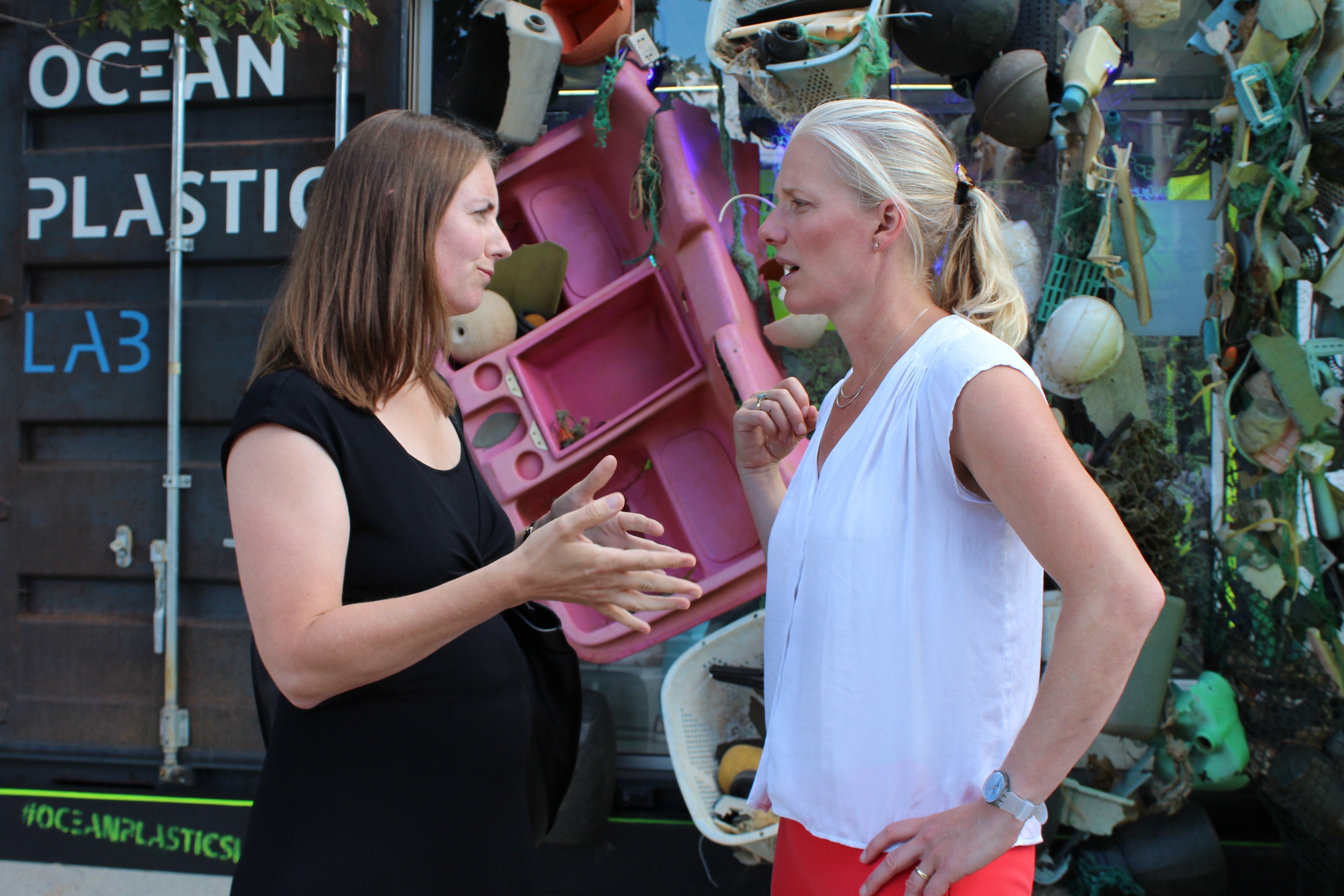
German Deputy Head of Mission Franziska Hagedorn and Environment and Climate Change Minister Catherine McKenna speaking about the need to work together, on many levels, to combat plastics in our oceans.
Understanding the science of plastics in the ocean.
Visitors to the exhibition request a photo with German Deputy Head of Mission Franziska Hagedorn and ECCC Minister McKenna at the Ocean Plastics Lab.
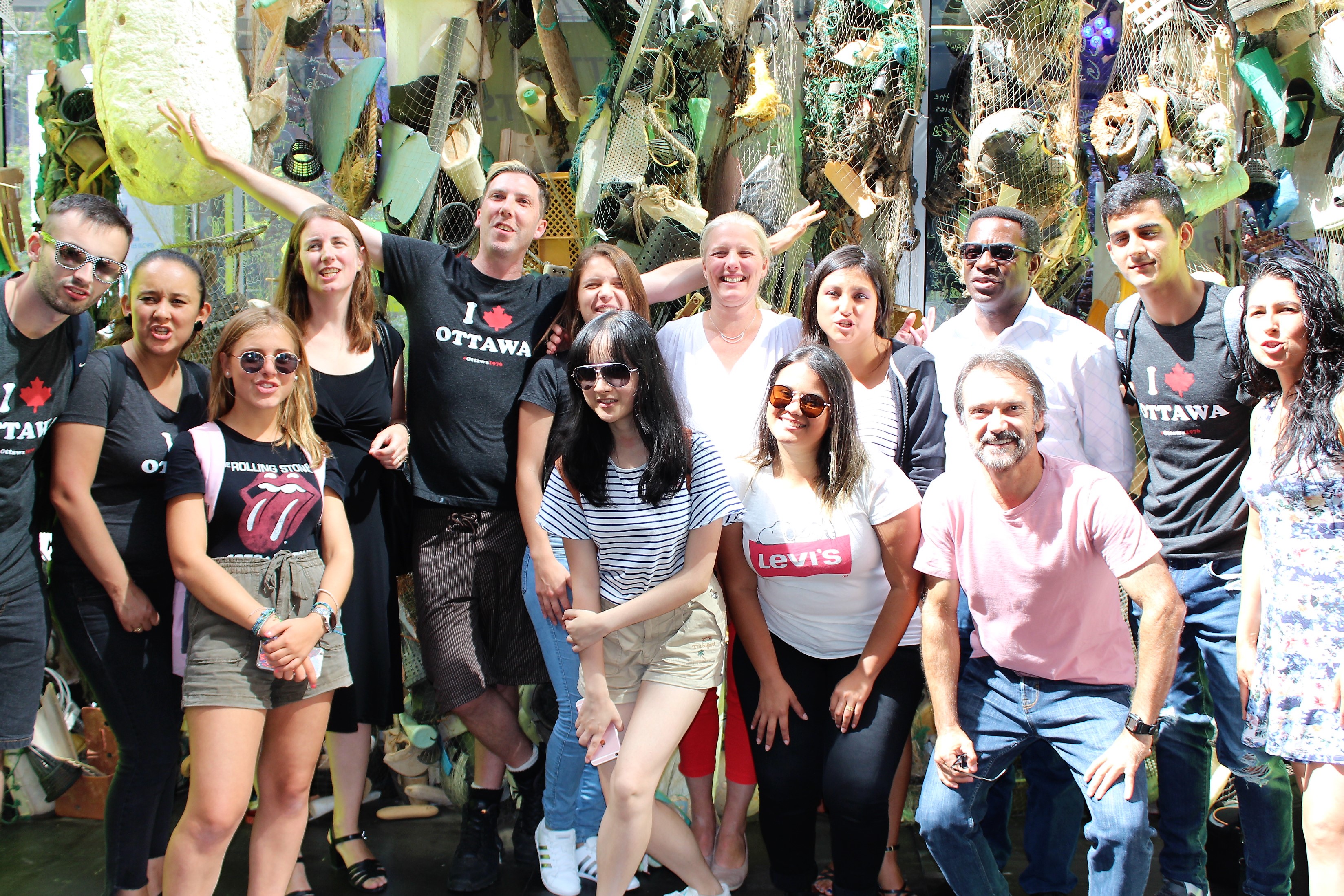
Dr. Julia Schnetzer: The stunning cooperation of so many partners around the world means this is one of the most in-depth and scientifically current exhibitions around.
In conversation with visitors to the Ocean Plastics Lab.
